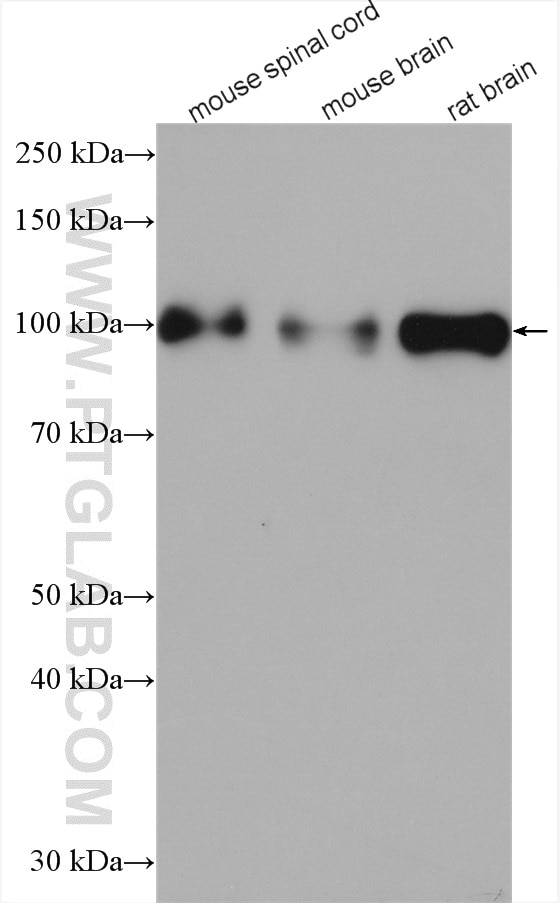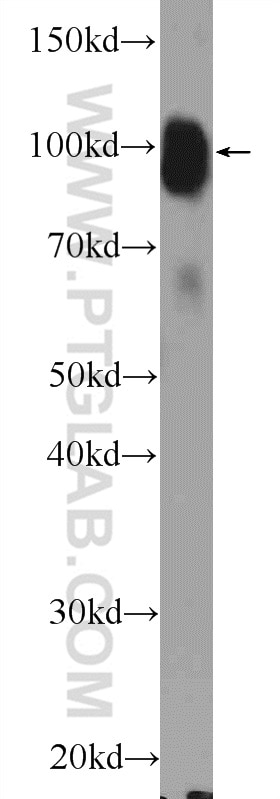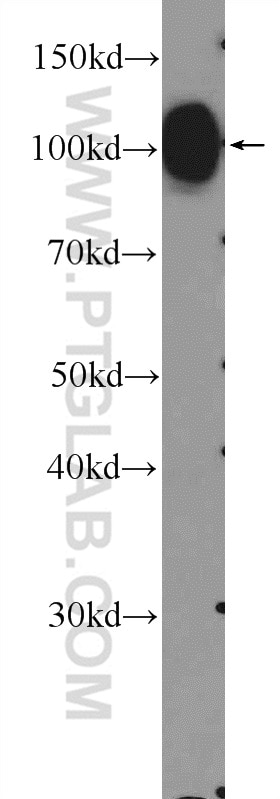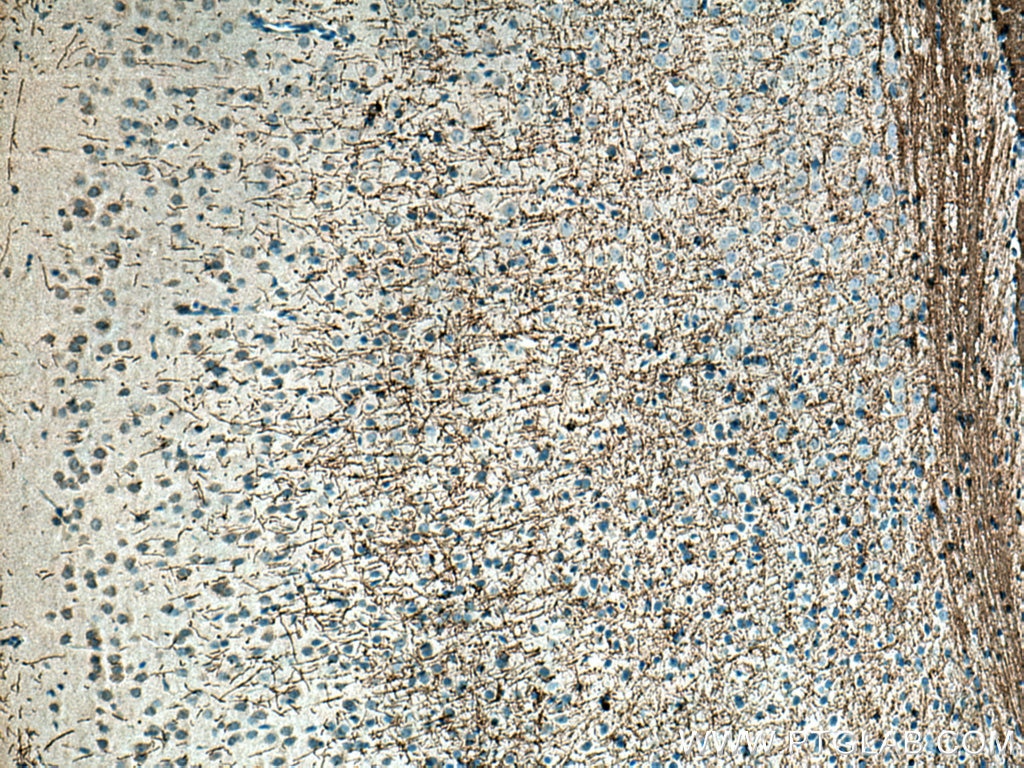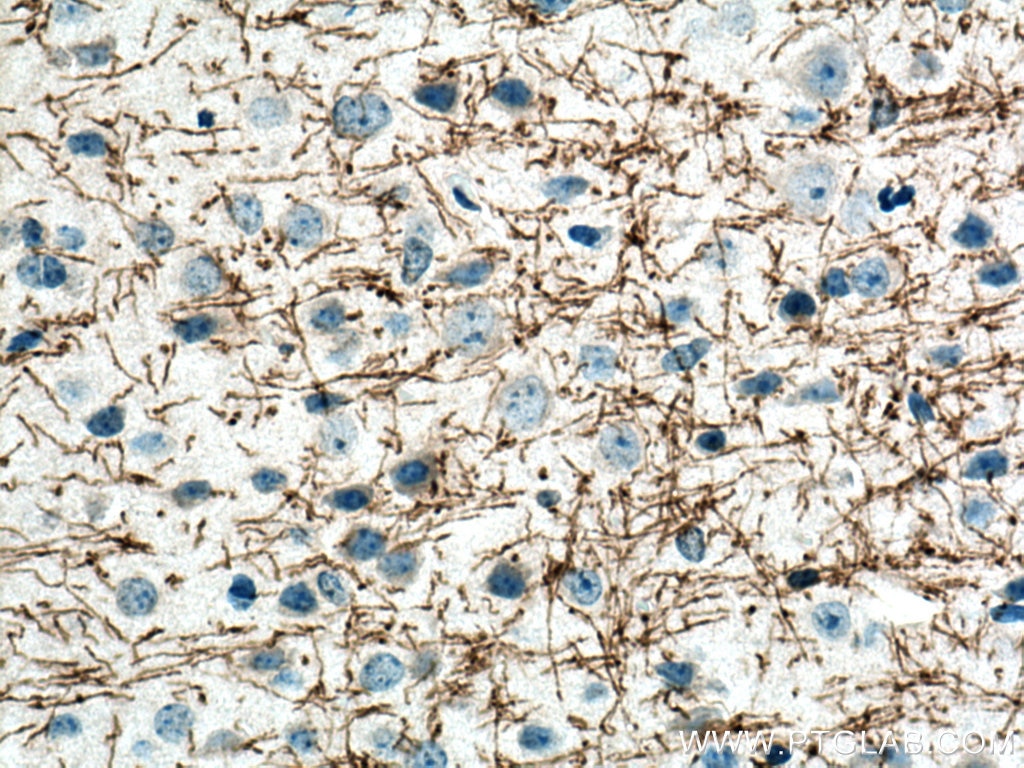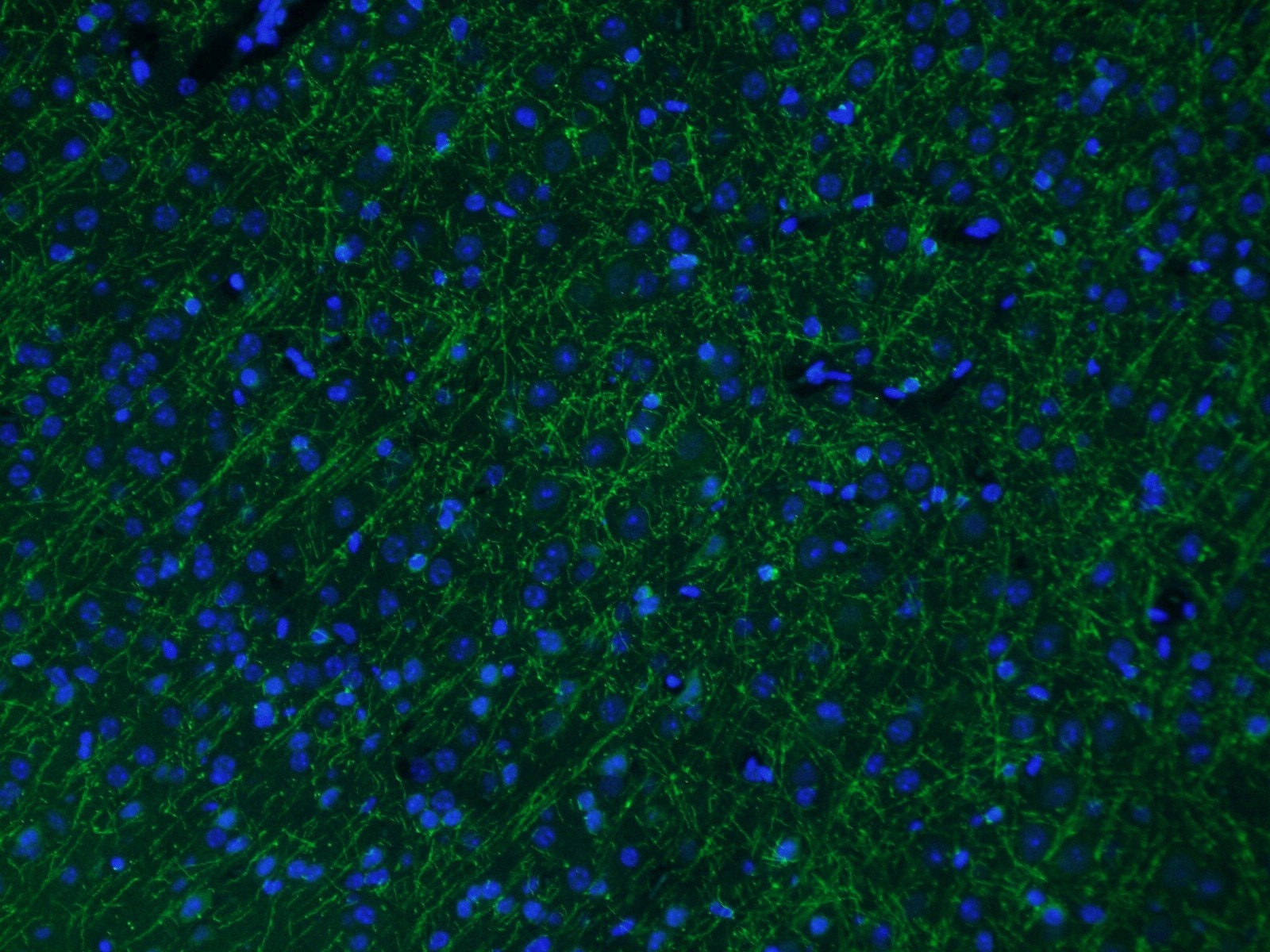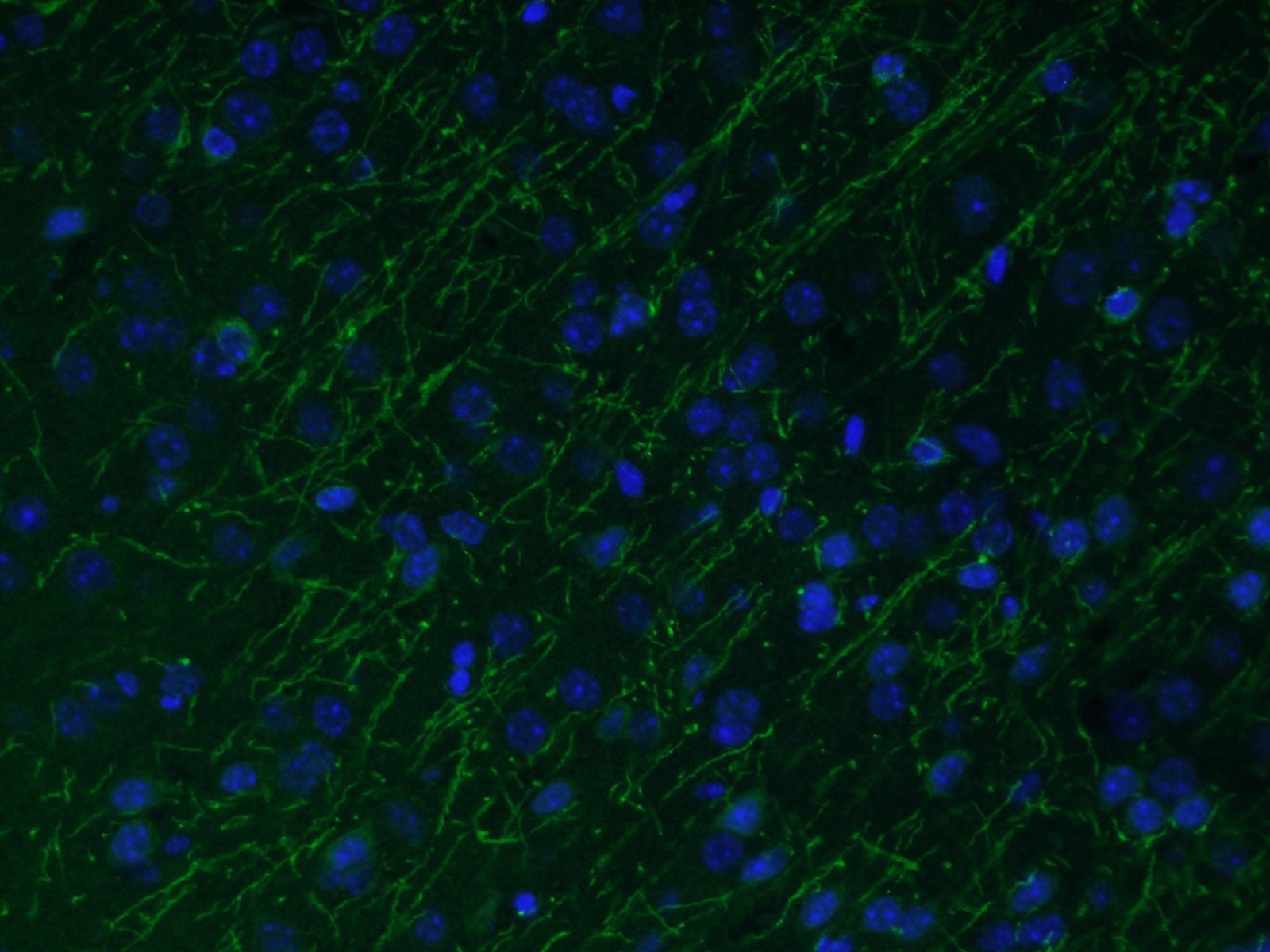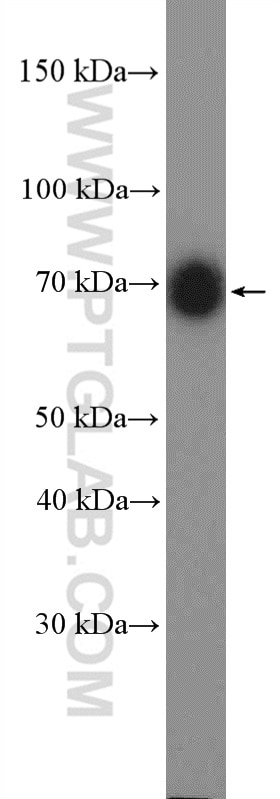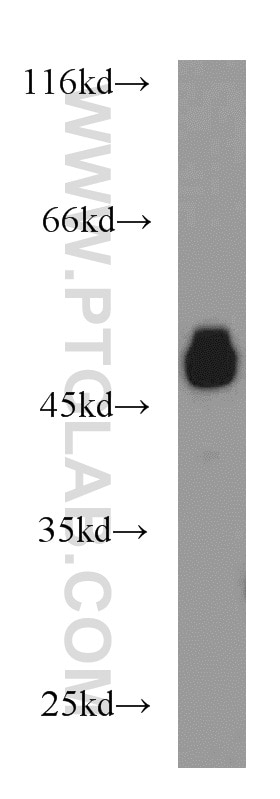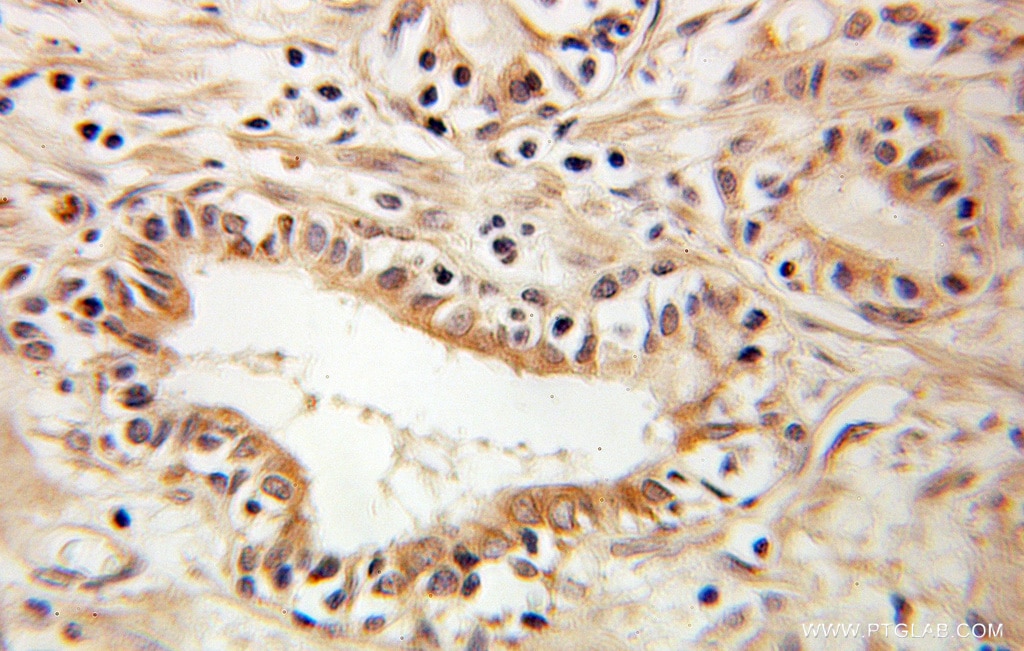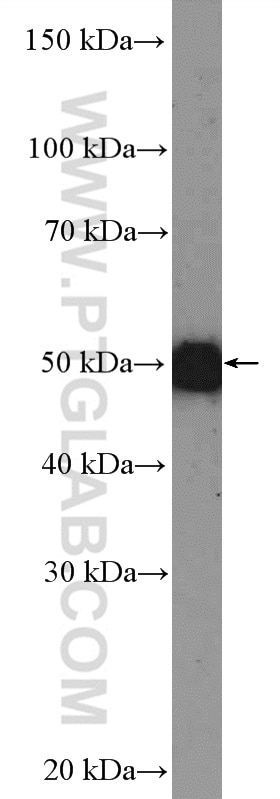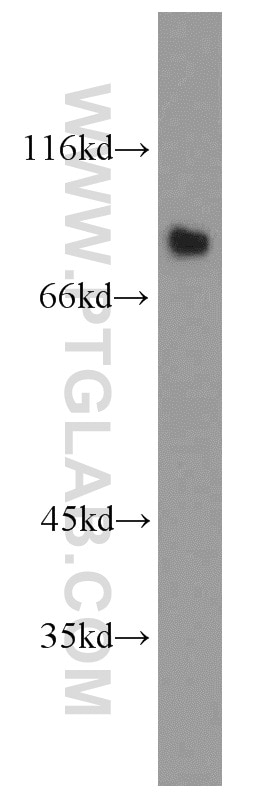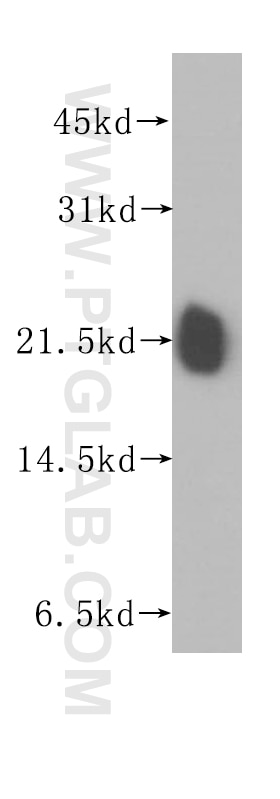Anticorps Polyclonal de lapin anti-MAG
MAG Polyclonal Antibody for WB, IF, IHC, ELISA
Hôte / Isotype
Lapin / IgG
Réactivité testée
Humain, rat, souris
Applications
WB, IHC, IF-P, ELISA
Conjugaison
Non conjugué
N° de cat : 14386-1-AP
Synonymes
Galerie de données de validation
Applications testées
| Résultats positifs en WB | tissu de moelle épinière de souris, tissu cérébral de rat, tissu cérébral de souris |
| Résultats positifs en IHC | tissu cérébral de souris, il est suggéré de démasquer l'antigène avec un tampon de TE buffer pH 9.0; (*) À défaut, 'le démasquage de l'antigène peut être 'effectué avec un tampon citrate pH 6,0. |
| Résultats positifs en IF-P | tissu cérébral de souris, |
Dilution recommandée
| Application | Dilution |
|---|---|
| Western Blot (WB) | WB : 1:1000-1:3000 |
| Immunohistochimie (IHC) | IHC : 1:50-1:500 |
| Immunofluorescence (IF)-P | IF-P : 1:50-1:500 |
| It is recommended that this reagent should be titrated in each testing system to obtain optimal results. | |
| Sample-dependent, check data in validation data gallery | |
Applications publiées
| WB | See 15 publications below |
| IF | See 5 publications below |
Informations sur le produit
14386-1-AP cible MAG dans les applications de WB, IHC, IF-P, ELISA et montre une réactivité avec des échantillons Humain, rat, souris
| Réactivité | Humain, rat, souris |
| Réactivité citée | rat, Humain, souris |
| Hôte / Isotype | Lapin / IgG |
| Clonalité | Polyclonal |
| Type | Anticorps |
| Immunogène | MAG Protéine recombinante Ag5845 |
| Nom complet | myelin associated glycoprotein |
| Masse moléculaire calculée | 69 kDa |
| Poids moléculaire observé | 100 kDa |
| Numéro d’acquisition GenBank | BC053347 |
| Symbole du gène | MAG |
| Identification du gène (NCBI) | 4099 |
| Conjugaison | Non conjugué |
| Forme | Liquide |
| Méthode de purification | Purification par affinité contre l'antigène |
| Tampon de stockage | PBS avec azoture de sodium à 0,02 % et glycérol à 50 % pH 7,3 |
| Conditions de stockage | Stocker à -20°C. Stable pendant un an après l'expédition. L'aliquotage n'est pas nécessaire pour le stockage à -20oC Les 20ul contiennent 0,1% de BSA. |
Informations générales
MAG (myelin associated glycoprotein) is a 100-kDa transmembrane glycoprotein that is a member of the SIGLEC family of proteins. MAG is localized in periaxonal Schwann cell and oligodendroglial membranes of myelin sheaths where it functions in glia-axon interactions (PMID: 17241126). It is a functional ligand for the Nogo-66 receptor (PMID: 12089450). MAG is a cell adhesion molecule for postnatal neural development and is thought to be involved in the process of myelination.
Protocole
| Product Specific Protocols | |
|---|---|
| WB protocol for MAG antibody 14386-1-AP | Download protocol |
| IHC protocol for MAG antibody 14386-1-AP | Download protocol |
| IF protocol for MAG antibody 14386-1-AP | Download protocol |
| Standard Protocols | |
|---|---|
| Click here to view our Standard Protocols |
Publications
| Species | Application | Title |
|---|---|---|
Brain A role of the frontotemporal lobar degeneration risk factor TMEM106B in myelination. | ||
Acta Neuropathol Commun TMEM106B deficiency impairs cerebellar myelination and synaptic integrity with Purkinje cell loss. | ||
J Cereb Blood Flow Metab Connexin43 promotes angiogenesis through activating the HIF-1α/VEGF signaling pathway under chronic cerebral hypoperfusion. | ||
Mol Neurobiol Quercetin Alleviates Demyelination Through Regulating Microglial Phenotype Transformation to Mitigate Neuropsychiatric Symptoms in Mice with Vascular Dementia. | ||
Neurosci Bull Digoxin Ameliorates Glymphatic Transport and Cognitive Impairment in a Mouse Model of Chronic Cerebral Hypoperfusion | ||
CNS Neurosci Ther Proteomic analysis of the effects of caffeine in a neonatal rat model of hypoxic-ischemic white matter damage. |
Avis
The reviews below have been submitted by verified Proteintech customers who received an incentive forproviding their feedback.
FH Emma (Verified Customer) (02-22-2022) | Works well on FFPE prostate tissue by IF. (Tris-EDTA antigen retrieval).
|
